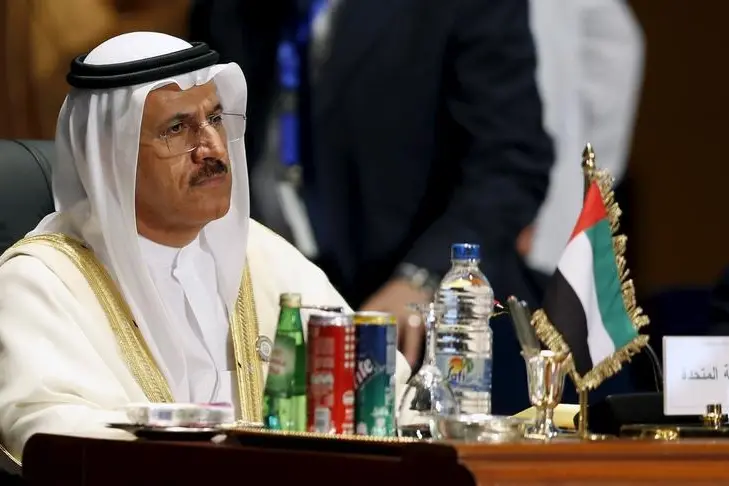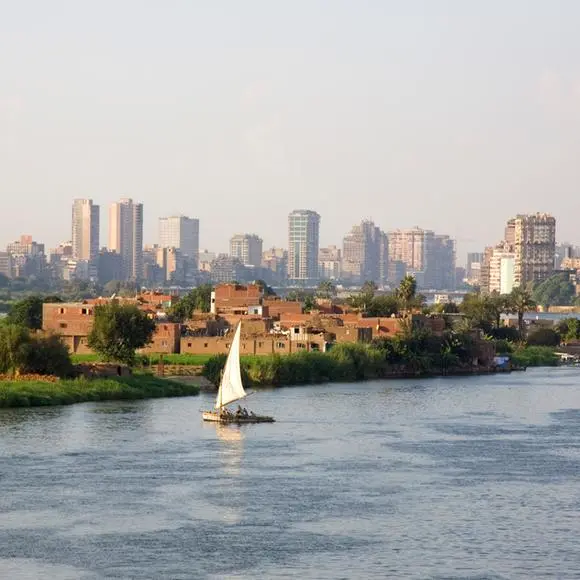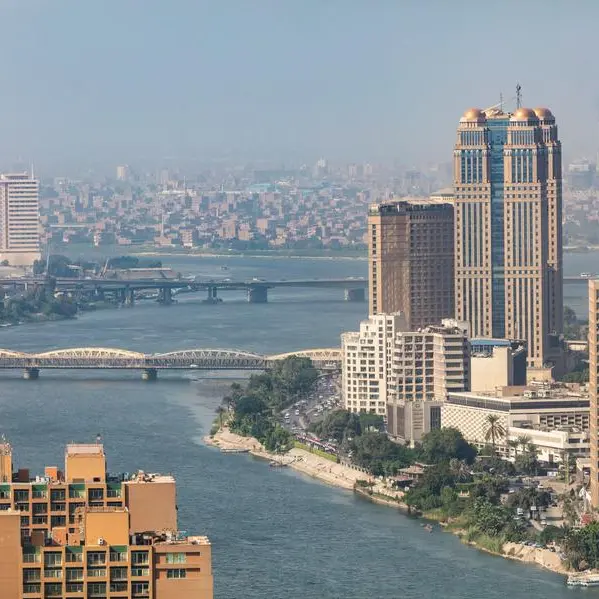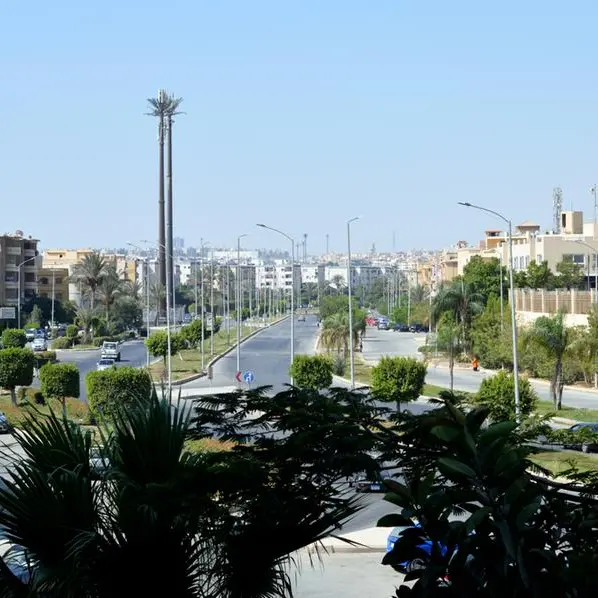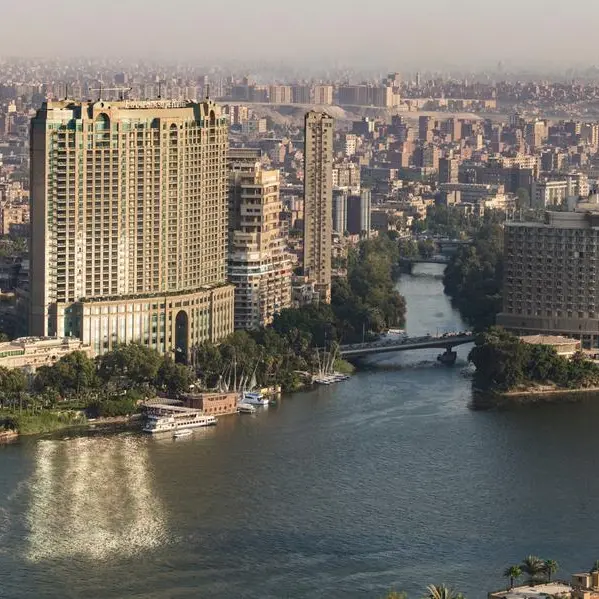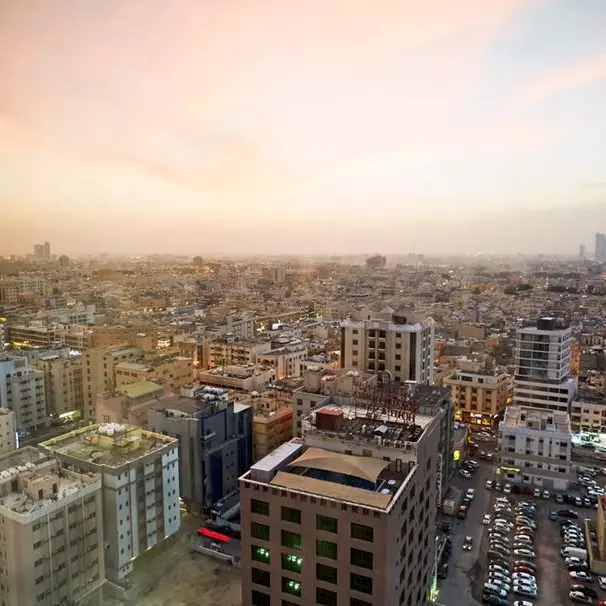PHOTO
The United Arab Emirates has overcome many obstacles over the course of years and has proven to be one of the fastest growing markets in the wake of the global economic crisis. The credits of this transformation notably go to the country's visionary leaders who have made impressive strides in their efforts to take the UAE to another level. His Excellency Sultan bin Saeed Al Mansouri, UAE Minister of Economy is one of the key contributors to this quantum leap. In an exclusive interview with Capital Business His Excellency shares his insights on the local economy and talks about the government's endeavors to strengthen the Emirates further.
Where do you see the UAE economy positioned today given the global economic volatility?
The UAE has been able to mark significant strides in every field despite the difficulties the global economy has faced in recent years.
The country's milestone achievements can be attributed to the progressive vision of our leadership. The UAE today boasts a secure environment that ensures economic and social stability. In addition, the nation offers an advanced infrastructure and highly efficient legislative environment that is attractive for businesses and foreign investments alike.
According to the Global Competitiveness Report 2014 issued by the World Economic Forum in Davos, the United Arab Emirates has advanced seven positions in the overall economic competitiveness index compared to 2013 to occupy the 12thposition globally, ahead of many developed countries.
How has the decline in oil prices impacted the local economy?
Oil and gas exports are still an important part of our national economy. In the past, the UAE was widely known as an oil-dependent country with oil accounting for up to 90% of its national income. However, today the UAE is clearly less dependent on oil as a source of revenue with income from non-oil sources now contributing more than 69% to the country's overall GDP.
Having said that, and given the fact that financial surpluses have been achieved in the past with oil prices lingering above US$100 a barrel for prolonged periods of time, we believe that the current decline in oil prices will have a limited impact on the UAE's projected growth rate for 2015.
The latest report issued by Merrill Lynch shows that among the GCC countries, the UAE is the least likely to be affected by a fall in oil prices. In addition, our government has repeatedly declared its aim to reduce the country's oil dependency to below 20% of the total GDP in the coming years - a mandate that will protect our economy from the vagaries of international oil prices in the future.
How would you describe the development of the GDP from the establishment of the federation until today?
The UAE's economy has witnessed quantum leaps in recent years, achieving record growth rates thanks to the successful economic policies pursued by our federal government based on economic diversification and the sustainable development of various sectors. Since the establishment of the UAE federation 43 years ago, the UAE's GDP has surged more than 236-fold to reach over US$419 billion by the end of 2014 compared to US$1.77 billion in 1971.
How do you describe foreign director investments and investors' appetite in the country?
The UAE has become the preferred destination for foreign investments ranking first regionally and 22nd globally in the 2015 World Investment index. More than 25% of the world's 500 largest companies have chosen the UAE as their operational headquarters for the Middle East and North Africa. In addition, the volume of foreign investments in the UAE over the past decade has exceeded US$100 billion.
The overall economic development of the country is very attractive for foreign investments especially in the non-oil sectors such as tourism, real estate, construction, financial markets, industry and retail. One of the best proof points to demonstrate the attractive economic and investment environment in the UAE is the establishment of 34 free zones for different sectors that provide full ownership and the possibility to achieve 100% profits in a tax-free environment.
I would like to emphasize that the benefit of foreign investments is not limited to pumping liquidity and capital in a number of vital sectors to create more jobs, raise government revenue or increase foreign exchange stocks. Several indirect benefits and positive effects can emerge from such investments - in technology import, practical, administrative and regulatory experiences, as well as in encouraging competition and innovation.
What is the government's plan to fuel investments in the Northern Emirates?
The development of our national economy is not limited to a particular emirate. Each emirate enjoys unique aspects that are reflected in the nature of investments flowing into it.
The federal government is working on strengthening the capabilities of the Northern Emirates to achieve the desired economic growth. The UAE President His Highness Sheikh Khalifa bin Zayed Al Nahyan has directed the implementation of developmental projects worth more than AED16 billion towards improving the critical infrastructure and key sectors within the Northern Emirates.
Each emirate has its own development plans that are aligned with the UAE Vision 2021, and has set up its own dedicated agency to promote available investment opportunities. As part of the federal government's efforts to support the Northern Emirates and ensure its growth, the Ministry of Economy actively participates in trade missions, international exhibitions, joint economic commissions, the investment forums, and other events and promotional opportunities.
There were recently talks about drafting a new foreign investment law for 100% ownership. When do you expect this law to be passed and what specific sectors does it include?
In line with the UAE Vision 2021 and the national agenda, we are targeting foreign investment flows equivalent to about 5% of the country's total GDP. We are also looking at ranking first in the Ease of Doing Business Index and 10th in the Global Competitiveness Index.
To achieve these objectives, we have worked to develop an enabling legal environment that makes the country more attractive to foreign investors. We are currently drafting a new federal law for Foreign Direct Investment that allows more than 49% percent foreign ownership in some sectors and businesses outside the free zones.
The draft of the law is now complete and we have received feedback from stakeholders in various emirates. The draft was presented to the UAE Cabinet and will come up for discussion in the forthcoming sessions of the Federal National Council (FNC).
What are the latest national initiatives the ministry is working on?
The Ministry of Economy's strategy 2014-2016 - that is aligned to the UAE Vision 2021- comprises seven strategic objectives and 32 national performance indicators, as well as a number of important strategic and operational initiatives.
In addition, there are many initiatives that the Ministry has either implemented already or is in the process of implementing in collaboration with other government agencies. We have recently launched the National Export Development Initiative aimed at achieving AED750 billion worth of national non-oil exports in 2021. The initiative was adopted by the UAE Cabinet in January 2014, and we are currently working on the implementation process with a number of federal and local relevant authorities.
We are also playing a major role in implementing the National Innovation Strategy, which includes dozens of initiatives aimed at positioning the United Arab Emirates among the most innovative countries in the world in the next six years. Furthermore, the Ministry of Economy is currently collaborating with the Korean Intellectual Property Office (KIPO) to implement a sophisticated mechanism for the registration of patents since it plays a key role in stimulating creativity and innovation and establishing a sustainable knowledge economy. Likewise, we have recently announced the launch of the Sheikh Mohammed Bin Rashid Al Maktoum Award for Business Innovation.
You have been organizing several trade missions to emerging and developing countries over the last few years. How do you plan to strengthen bilateral trade with these countries and where do you see growth opportunities?
The trade and investment missions organized by the Ministry of Economy in cooperation with a number of strategic partners aim to explore available trade opportunities in sectors that are of importance to the UAE, or in sectors in which we possess distinct expertise and capabilities that can benefit other countries.
Our bilateral discussions with the countries we visit focuses primarily on finding ways to overcome obstacles facing Emirati investors, and the possibility of opening new air routes or increasing the number of flights with these countries to encourage business and leisure visits. The talks will ultimately help raise trade volumes, and more importantly, explore the possibility of establishing a joint economic commission to strengthen trade and investment relations.
The UAE currently has carrier agreements with 168 countries, more than 75 agreements to prevent double taxation, and about 50 agreements to protect and encourage investment. Today, the UAE also co-hosts joint economic committees with 18 countries globally.
Which sectors need empowerment the most in order to achieve the UAE Vision 2021?
The development of various economic sectors is currently on track as per the objectives of the national agenda of the UAE Vision 2021. To achieve the goal of increasing the contribution of small and medium-sized enterprises (SMEs) to 70% of the total non-oil GDP, the UAE President His Highness Sheikh Khalifa bin Zayed Al Nahyan issued the Federal Law No. 2 of 2014 for small and medium-sized enterprises. The law is set to significantly contribute to the development of the SME sector and ensure the achievement of targets listed in the national agenda.
Additionally, the UAE seeks to figure among the top 20 countries in the world in the Global Innovation Index by 2021. His Highness Sheikh Mohammed bin Rashid Al Maktoum, Vice President and Prime Minister of the UAE and Ruler of Dubai, has launched the national strategy for innovation that aims to position the UAE among the most innovative countries in the world. The federal government is working on all tracks in parallel to cumulatively achieve the goals of the national agenda.
We are also working to increase the industrial sector's contribution to the UAE's GDP to about 20% in the next five years.
According to you, what will be the impact of Dubai hosting Expo 2020 on the country? What are the Ministry's plans for this awaited event?
The UAE has strengthened its global position in the past few years and we expect that strong trend to continue on all levels, especially following Dubai's bid-winning performance to host Expo 2020.
This important event will make a qualitative contribution to the national economy. The UAE bid was based on the mottoConnecting Minds, Creating the Future, echoing the powerful spirit of partnership and co-operation that has driven the country's success in pioneering new paths of development and innovation. Through leveraging this theme, Expo 2020 Dubai will serve as a catalyst, connecting minds from around the world and inspiring participants to mobilize efforts to address shared challenges towards hosting an unprecedented global event, under the sub-themes of: Mobility, Sustainability and Opportunity.
Additionally, the exhibition will create more than 270,000 job opportunities, and attract more than 25 million tourists - accelerating tourism to never-seen-before levels.
The Ministry of Economy has supported the hosting of the exhibition since the early stages of the UAE's nomination. In all our communication with national delegations from around the world, we have urged them to ensure a significant representation at the exhibition that serves as a global platform for the exchange of experiences and best practices across varied sectors.
© Capital Business 2015
